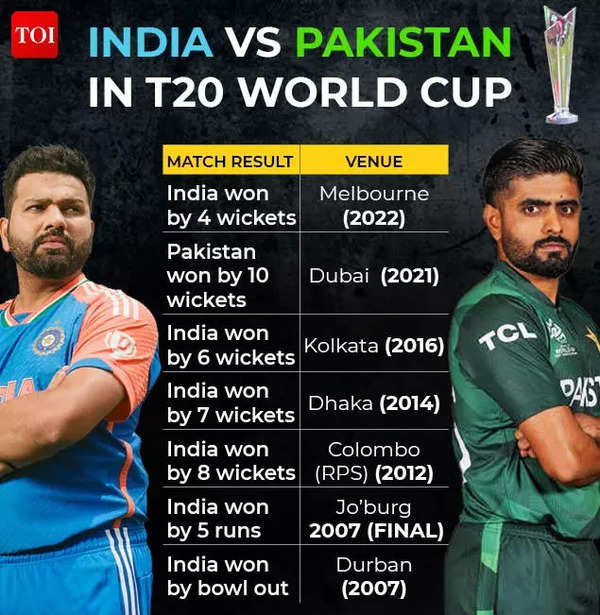NEW DELHI: Ex-cricketer
Navjot Singh Sidhu
described the encounter as a highly significant contest ahead of the
T20 World Cup 2024
match between India and Pakistan. India enter this match with a recent victory over Ireland by 8 wickets, while Pakistan, under the leadership of
Babar Azam
, faced a narrow defeat in a super-over against the US in their last game at the tournament.
Sidhu underscored the immense pressure of expectations that defines the India-Pakistan matchup. He highlighted that a victory against Pakistan can significantly elevate a player's status, regardless of their performance in prior matches.
ALSO SEE: T20 World Cup Schedule | T20 World Cup Points Table
"If you're not winning against Pakistan, then you are zero from hero even if you have done everything in your previous seven matches. It is the mother of all battles and the most important thing here is the pressure of expectation," Sidhu said.
According to Sidhu, the intense rivalry and expectations make this match a critical confrontation.

Sidhu also noted that India appear to have the upper hand going into the match, given Pakistan's recent string of underwhelming performances, including losses against England in a warm-up match and against the USA.
"India will have an advantage because Pakistan have not performed in their previous matches. They lost against England, in the warm-up match and also against US. On the other hand, India is in the ascendancy and all the players are in form. Pakistan's batting lineup is not working and they are not aware of the conditions here in New York," he added.

However, Sidhu also acknowledged the unpredictable nature of cricket, suggesting that despite India's advantages, Pakistan have the potential to surprise on any given day.
"India will have an advantage. But on a given day, Pakistan can do anything," he added.
There are multiple factors that could influence the outcome of the upcoming
India vs Pakistan
match in the
T20 World Cup
2024. The challenges include the significance of form, previous performances, and the psychological aspects associated with this high-stakes rivalry.
(Inputs from ANI)









 English (US) ·
English (US) ·